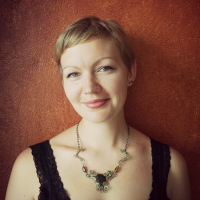
One of the most common topics that my beautiful clients bring up in our sessions is authenticity.
Namely, how to stop living a life based on someone else’s terms and start living a life that is true to our own values, needs and desires.
I understand where they’re at: in my early twenties, I had what Brené Brown describes as a “breakdown/spiritual awakening”. A huge part of this was realizing I’d created a life based on the expectations and wishes of the people around me and it wasn’t a life I wanted. At the same time, however, I was left with the question:
What does “living authentically” even look like?
Advice to “just be yourself” washed over me but felt empty. Who was “myself”? What did she enjoy? What did she really want?
Over the last several years, I’ve been on a quest to rediscover my own version of living—the version of living that’s true to me, rather than one based on how I think I should live, or how other people have told me to live. I’ve questioned my life rules, thrown most of them out of the window, added new ones that resonate, and embarked on a journey of exploration based around the questions:
Who am I? What does it really mean to be me?
I’m still asking those questions—I probably always will be—and slowly but surely I’m getting deeper and deeper into a life that feels true to myself. I’ve stopped worrying about what other people think so much and I’ve started doing things based on my values and my preferences, rather than what will help me fit in. Most importantly, I’ve started to listen to and respect my instincts and intuition.
Here are five steps I’ve found helpful on my journey so far:
1. Examine my inner “shoulds.”
As I mentioned, a big part of my rediscovery process has involved uncovering my “rules for life,” in other words, my beliefs about myself and the world around me. We all form these rules during childhood and adolescence, and we end up carrying them with us long after they’ve stopped being helpful. Usually these aren’t even our rules; they come from our parents, friends, teachers, and other mentors or authority figures.
Part of our individuation process as adults is to notice where we’re acting on these rules and beliefs, to examine them and to decide: does this rule/belief really ring true for me? Does it fit with who I want to be? If not, what alternative rule or belief might I want to replace this one with?
2. Identify my values.
This is one of the first exercises I work through with clients—and for a very good reason. Identifying our core values is a simple but powerful exercise that highlights our most prized qualities in life.
The process of identifying our values can be as simple as googling “list of values”, checking off the words that resonate with you and narrowing down your list to the top 10, the top five, then your top three.
Once we’re aware of our values, it’s far easier to make decisions that are aligned with our authentic selves rather than what other people want. With any decision, ask yourself: “Does this bring me closer to or take me further away from my values?” and listen for the answer.
3. Create a Life List.
I only started creating a proper Life List earlier this year (better late than never!) and it’s been so much fun. Life Lists can include everything from life-changing goals (e.g., having children), to places you want to visit, skills you want to learn, and experiences you want to try.
To create a truly authentic Life List, go stream-of-consciousness and write down anything that comes into your head. Every time you see or hear about something that strikes a chord with you, add it to the list.
4. Deepen my boundaries.
As I’ve started living in a way that’s truer to myself, I’ve become a lot more aware of my boundaries—and a lot more accepting of them.
Being mindful of boundaries are especially important as we recover our authenticity. The people around us might not be used to us expressing our own needs and preferences and we might experience some push-back as a result.
Deciding what kind of interactions and behavior I’m willing to engage with, and which I’m not, has been invaluable on my journey so far. Establishing my boundaries has led to important lessons around taking advice (just because someone offers it doesn’t mean I’m obligated to take it) and feedback (just because someone has an opinion doesn’t make them right), that have given me far more confidence and freedom to trust my own journey through life.
5. Create a future vision.
Over the past year, I’ve made a big shift in how I think about the future. Previously, I used to focus on the question “What do I want to do?” Now, I’ve changed it to “Who do I want to be?” What I’ve found is that when I focus on the “be”, the “do” part usually becomes clear pretty quickly.
Questions I’ve found it helpful to ask myself include: Who do I want to be in five years’ time? How does that version of myself feel? What are their priorities? What do they spend most of their time on? Who do they spend their time with? How do they express their values?
What advice do you have for living an authentic life? Share your thoughts below!
Love elephant and want to go steady?
Sign up for our (curated) daily and weekly newsletters!
Apprentice Editor: Guenevere Neufeld / Editor: Renée Picard
Photo: Courtesy of author






Read 0 comments and reply